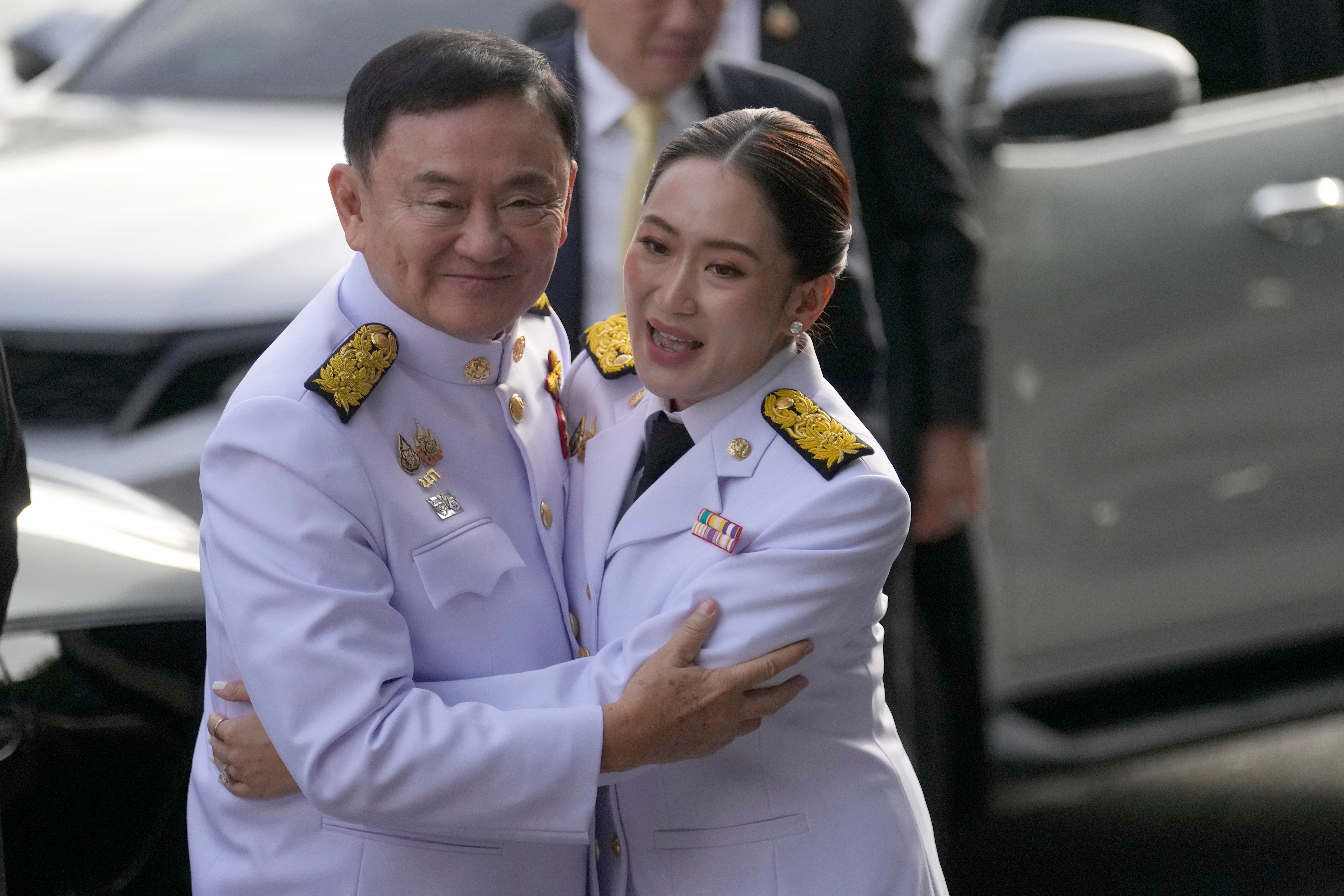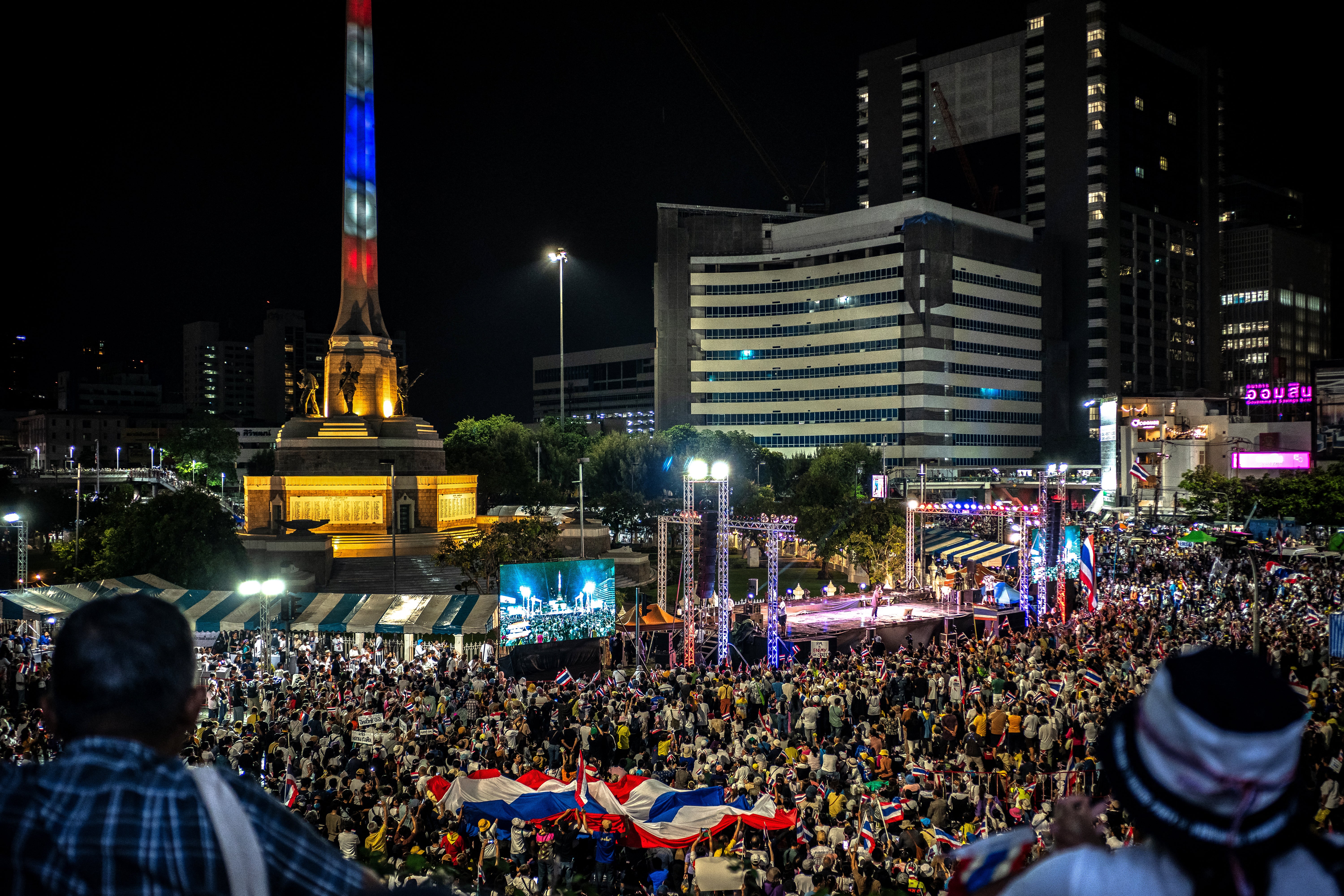Thailand’s constitutional court has suspended prime minister Paetongtarn Shinawatra as it considers a petition seeking her dismissal following a scandal over a leaked phone call with Cambodia’s former leader Hun Sen.
The government is likely to be led by deputy prime minister, Suriya Juangroongruangkit, in the capacity of a caretaker with Ms Paetongtarn’s powers suspended from Tuesday.
Ms Paetongtarn said she accepted the constitutional court's decision and apologised for upsetting people.
"I want to apologise to people who are upset by all of this," she told reporters, "I will continue to work for the country as a Thai citizen."
The court accepted a petition from 36 senators accusing Ms Paetongtarn of dishonesty and violating ethical standards laid out in the constitution after her call with the former authoritarian leader of Cambodia triggered political turmoil.
The decision to suspend the prime minister from her duties was supported by seven of the nine judges, the statement by the court said.
Ms Paetongtarn has 15 days to respond with evidence to support her case to the court.

The case against Ms Paetongtarn, 38, the daughter of ousted former prime minister Thaksin Shinawatra, is the latest legal challenge against her after only 10 months in power.
She prompted outrage across the country after she was heard criticising the Thai army’s role in a border standoff with Cambodia in a 15 June phone call that was recorded and shared by Mr Hun Sen.
The criticism of the army is seen as a red line in a country where the military has significant clout. She has apologised and said her remarks were a negotiating tactic.
The decision came as thousands of protesters gathered in Bangkok demanding the prime minister’s resignation on Monday. It was the largest rally since her party took power in 2023 and was led by long-time opponents of the Shinawatra political dynasty, accusing her government of failing to uphold democratic principles.

Undeterred by the monsoon rain, thousands of demonstrators gathered at the Victory Monument in Bangkok, blocking roads, waving Thai flags and holding placards with slogans like the “PM is enemy of state”.
The controversy has left Ms Paetongtarn's fragile coalition with a razor-thin majority after a key party abandoned the alliance and is likely to soon seek a no-confidence vote in parliament.
The support for the prime minister has also fallen to signal digits with a new opinion poll showing only 9.2 per cent of respondents supporting her, according to a survey by the National Institute of Development Administration. It marked a steep fall from a March survey when 30 per cent of people backed her.
In the 17-minute phone call, Ms Paetongtarn was heard calling Mr Hun Sen "uncle" as they discussed through translators whether they should lift border restrictions imposed after the deadly clash. She also requested him to ignore “the opposite side”, a reference she apparently made to the Thai military. She said they were trying to look “cool” by making statements that were not in the interest of anyone.
The border standoff between the two countries has continued to intensify since an armed confrontation on 28 May at a part of the border that both countries claim. A Cambodian soldier was killed in the confrontation.
The two countries have since enacted tit-for-tat measures to restrict trade and cross-border movement.
If dismissed from her role as prime minister, Ms Paetongtarn will be the second leader of the Pheu Thai party to be removed after August last year when her predecessor Srettha Thavisin was dismissed over a breach of ethics.
It made way for her father Mr Thaksin to be sworn in as the prime minister. The deposed former leader returned to Thailand in 2023 after spending 15 years in exile to face charges under the country's notorious lese majeste law.







